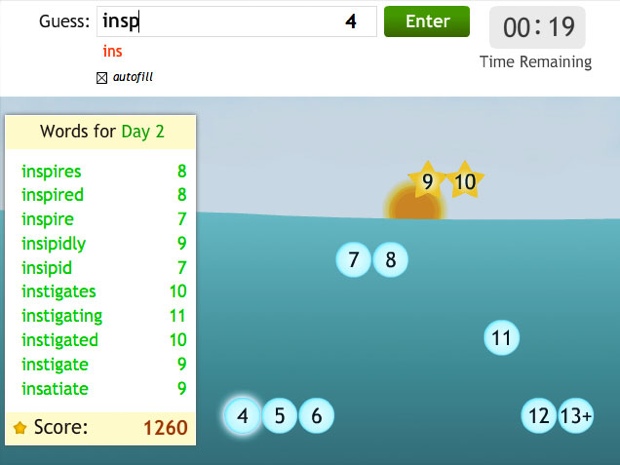Back in 2007, Lumosity was a scrappy startup scrounging for seed money. Today, the San Francisco-based company that creates games to make your brain work better is announcing it’s landed over $32 million in new funding.
What a difference four years make.
“When we first invested, we were concerned this was just a niche area for people with Alzheimer’s or other cognitive problems,” Tim Chang of Norwest Venture Partners tells Fast Company. “But Lumosity has proved there’s universal demand for this among all demographics.”
Indeed, today, over 14 million people in 180 countries either subscribe to Lumosity’s website or have downloaded one of its iPhone apps. And revenues have grown 25% every quarter since its launch.
Other companies, like CogniFit and Posit Science, also compete in this space, though none has received as large a round of funding as Lumosity. Sharp Brains, a market research firm tracking the brain fitness space, estimates that the size of the market for digital products was just under $300 million in 2009 and will grow to at least $2 billion by 2015.
Lumosity’s website offers 40 games designed to sharpen a wide range of cognitive skills. The signup process walks you through a series of questions to figure out whether you want, for example, to improve your ability to remember names, get better at problem solving, or develop better concentration at work or while driving. It then designs a series of “courses” tailored to your particular interests.

In one game, players are given a three-letter prefix and must come up with as many words as possible while a clock counts down. In another, arithmetic problems appear in bubbles, and the player has to solve them before the bubble bursts. A third, which is reminiscent of the IQ tests you took as a kid, challenges you to remember the locations of various tiles in a grid.
But all of this comes at a price. Website subscriptions cost $14.95 a month, or $80 a year. And yet, plenty of people are paying.
Lumosity CEO Kunal Sarkar tells Fast Company that’s in part because brain fitness is the latest wave in the trend of healthy living that started three decades ago when suburbanites started flocking to gyms and continues today with the widespread interest in yoga and organic foods. Many people pony up the annual subscription, equating it with a gym membership, but for their brains.
Meanwhile, the neuroscience research coming out of universities over the past couple of decades has confirmed that cognitive abilities are not necessarily fixed. Just as you can beef up your body by lifting weights, the types of games that Lumosity and its competitors offer can make your brain stronger and work faster and better.
“There’s a growing understanding that you can affect core cognitive functioning throughout your life,” says Sarkar, whose cofounder Michael Scanlon was a neuroscience graduate student at Stanford before he--in good Silicon Valley form--dropped out to help start the company.
The fact that more and more of us work in fields that rely on how well that piece of jelly between our ears functions is also part of what’s driving the interest in brain fitness. Lumosity users include everyone from traders in Chicago who use the tools to warm up their noggins before heading to the trading floor, to actors in Los Angeles wanting to get better at memorizing scripts, to pilots using them to improve their spatial abilities and reaction times.
“We don’t necessarily teach you anything,” Sarkar says, “but we make it easier for you to learn new things, which is more and more important.”
No comments:
Post a Comment